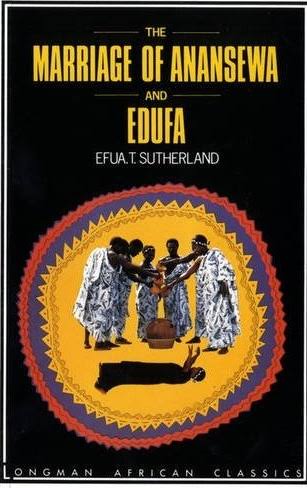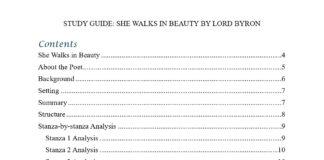Quality UTME Lessons for Art Students
Individual and group classes • Student-friendly rates
📞 Contact Ayomiposi on WhatsApp now
The Gods are not to Blame by Ola Rotimi is a story about a valiant warrior and king, Odewale, who is cursed from birth by the gods to kill his father and marry his mother.
His parents, King Adetusa and Queen Ojuola, try to have him killed but the kindness and compassion of the king’s messenger spare him and set him on the hollowed path of his destiny.
Odewale’s impatience, hot temper, and tribal sentiment accelerate the fulfilment of his destiny. In this post, we shall look at the themes in The Gods are not to Blame.
Read Also:
- Critical Analysis of Ola Rotimi’s The Gods are not to Blame
- Characterisation in Ola Rotimi’s The Gods are not to Blame
- Memorable Quotes from Ola Rotimi’s The Gods are not to Blame
Some of the themes expressed in The Gods are not to Blame include predestination, manipulation, incest, suicide, patricide, anger, good leadership, blindness, the efficacy of royal utterances, women servility, responsibility, and the absence of trust.
Now, let’s take each theme one after the other.
Theme of Predestination
Predestination is the main thrust of Ola Rotimi’s The Gods are not to Blame. The play shows the importance of fate in the interplay of man’s struggles.
Odewale is fated from birth by the gods to kill his father and marry his mother. Every effort by men to thwart this destiny only brings Odewale even closer to the trajectory of that destiny.
After the divination about his future, the monarchy orders Gbonka to take Odewale to the evil groove where he would be killed. In the evil bush, Gbonka’s emotions get the better of him and he spares him.
Many years later, Odewale’s fear of killing his father and marrying his mother makes him flee from his foster parents. It brings him to the farm where he kills his real father and to Kutuje where he marries his real mother.
This indeed shows that there is no escaping the bad destiny set for him by the gods.
Theme of Manipulation
The gods harness man’s fear, compassion, curiosity, and hot-temperedness to bring forth the realisation of Odewale’s abominable destiny.
If for example, the king and the queen come to terms with reality of their son’s destiny and accept him for who he is, I feel things might not have turned out the way they did. Or if they could let go of their fear and have him killed on the spot, the gods’ plan would have gone to rust.
If Odewale too had followed the instructions of the Ifa Priest not to fight fate, been less curious and a little patient, things would have turned out differently for him.
The gods manipulate the innate qualities of man so Odewale fulfils his destiny: fear in King Adetusa and his wife; compassion and kindness in Gbonka; and in Odewale’s case, a combination of fear, curiosity, ethnic bigotry, hot-temperedness, violence and impatience.
Theme of Incest
Incest involves having sexual relations with one’s close relatives and family members. In the case of The Gods are not to Blame, it is between the son and the mother.
The theme of incest is shown in the sexual relation between Odewale and Ojuola. Odewale marries his mother, Ojuola, and together they have four children, two boys and two girls: Adewale, Adebisi, Oyeyemi, and Adeyinka.
Theme of Suicide
Suicide is the act of killing oneself. It is often committed out of frustration or depression. It is also resorted to in order to save one face from disgrace or shame. It is sometimes taken as an honourable option.
When Queen Ojuola learns that her husband and father of four children for the past eleven years is actually her first son, she withdraws to the inner chamber of the palace where she stabs herself to death with a knife.
She does this because of the burden of shame and sadness her incestuous relationship with Odewale weighs on her.
Theme of Patricide
Patricide refers to the act of killing one’s father. This is the central emphasis of Odewale’s birth prophecy: “He would kill his father, and marry his mother”.
Odewale kills an old man in his farm in Ede, at a place where three paths meet. The old man turns out to be his biological father, King Adetusa.
Odewale therefore fulfils a core part of his destiny. The idea of a son killing his father as revealed by the priest’s prophecy and its fulfilment highlights the issue of patricide in the text.
Theme of Anger
It takes a day for anger to destroy what one has built for many years. Anger is the strength and yet a weakness of Odewale. It fuels his resolve. But then, it is one reason for his downfall.
Baba Fakunle admits this during his encounter with Odewale: “Your hot temper like a disease from birth is the curse that brought you trouble”.
Odewale has no self-restraint when he is angry. Nothing holds him back. He goes all-out to do regrettable things on impulse. His easily triggered anger makes him kill a man who would later turn out to be his real father.
We see he regrets his decision and he has to leave Ede completely. He is also very remorseful when he opens up to Alaka, his childhood acquaintance, eleven years later on how he kills a man because the man insults his tribe.
This of course shows that Odewale is blinded by anger when he kills the man and suggests that he has no control over himself whenever he is angry.
Besides, his anger shows in his relations and encounters with his chiefs, Aderopo, Baba Fakunle, and even Alaka whom he manhandles for his reluctance to set straight the details of Odewale’s origin.
It is in this hot-temperedness that he, a king with his people’s respects, takes Aderopo head-on. At the tail end of this confrontation, Odewale swears by Ogun that may he never see Aderopo with his two eyes. And true to his words, the next time the two meet, Odewale has lost his sight.
He says and does a lot of regrettable things when he is angry. It is right to say that anger, among other things, is a magnetic force that pulls Odewale to his tragic end.
Premium PDF
There are 875 words left in this article and a total of 6,607 words in our premium PDF. Download the entire The Gods Are Not to Blame study guide as a printable PDF now!

Receive Literary Updates through our Social Media Channels:
- WhatsApp: Literature PADI
- Telegram: Literature PADI
- YouTube: @literaturepadi
- Facebook: Literature PADI









This is intriguing! Keep it up, Prof❤️
Thank you for this analysis, truly helpful